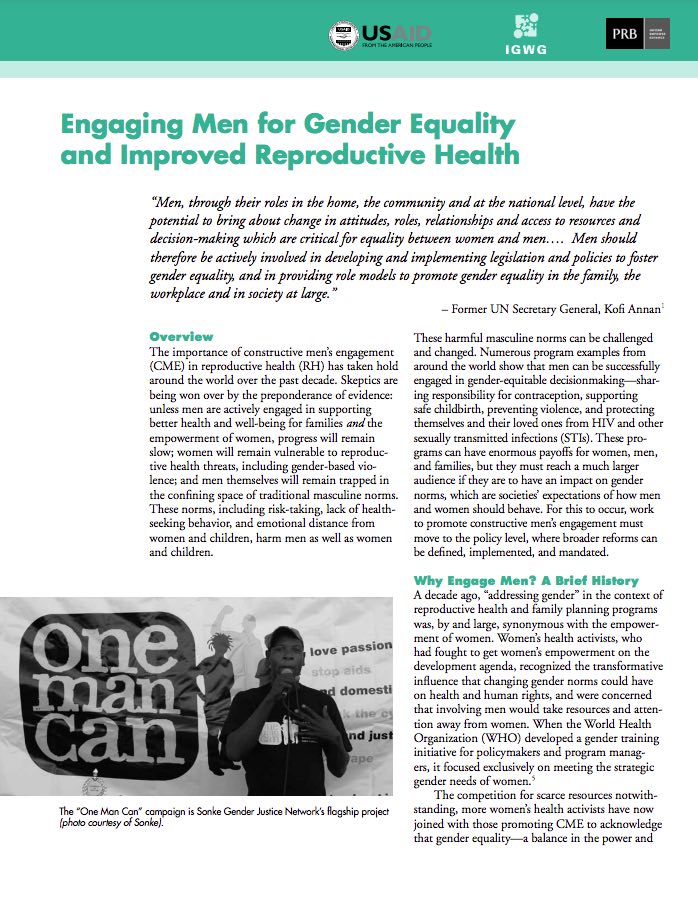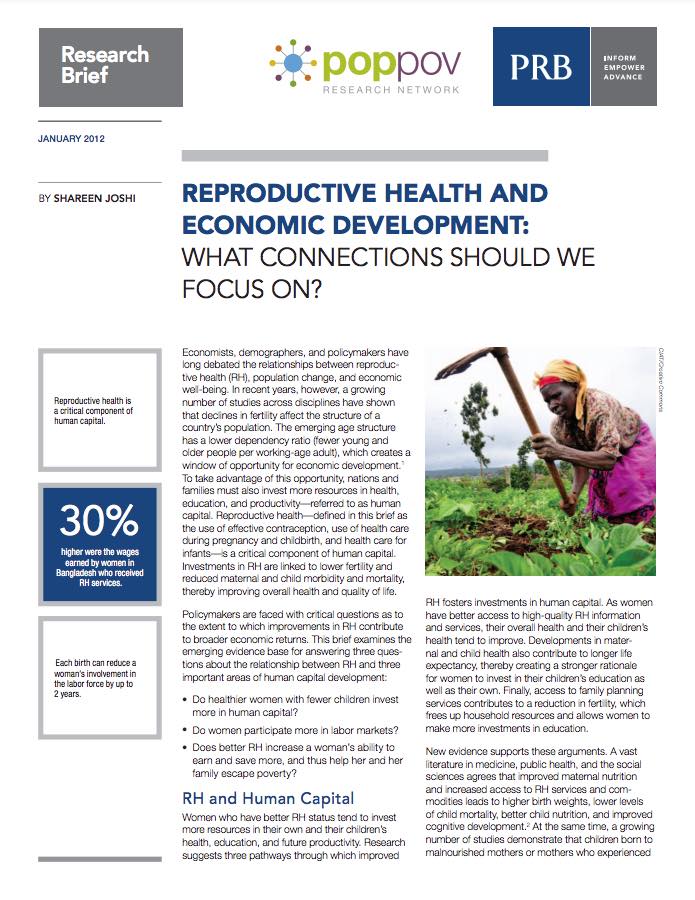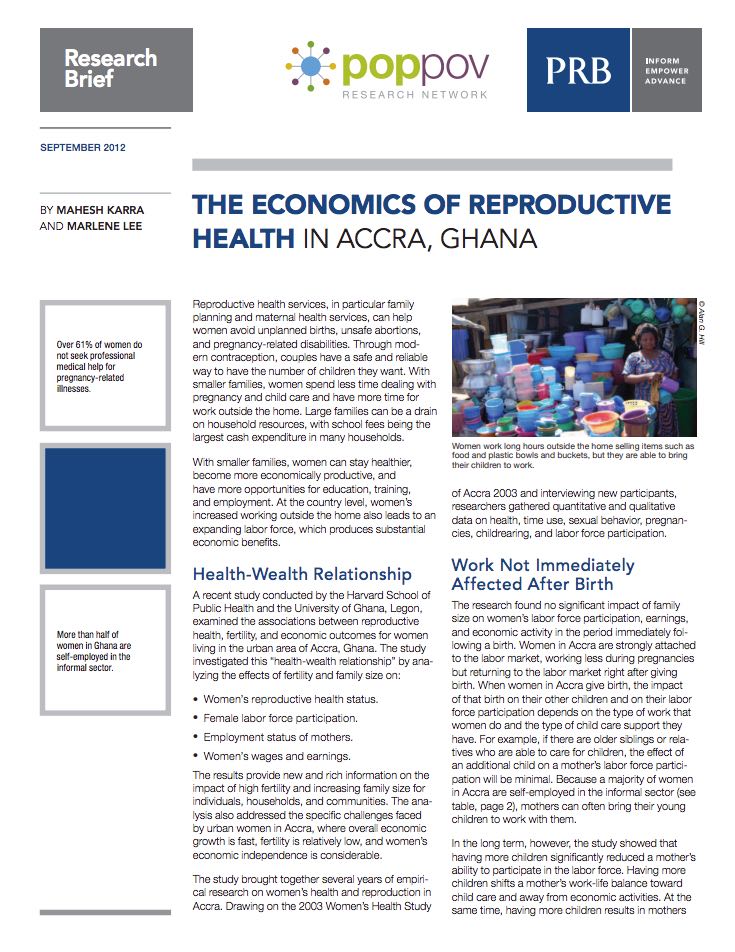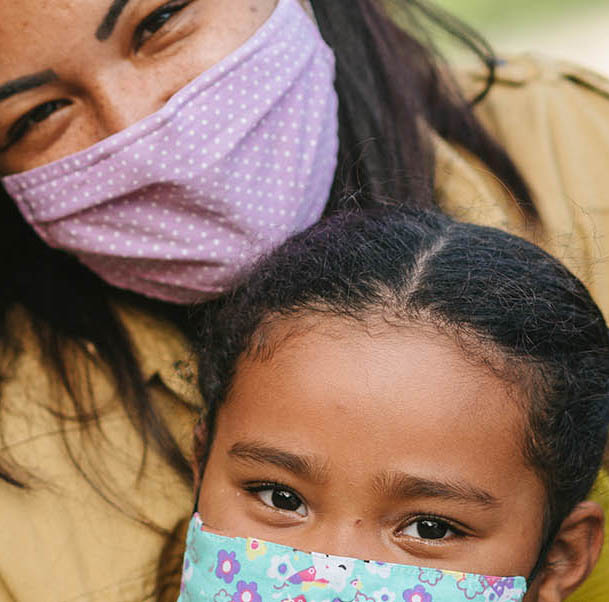Engaging Men for Gender Equality and Improved Reproductive Health
(2010) The importance of constructive men's engagement in reproductive health has taken hold around the world over the past decade.

(2010) The importance of constructive men's engagement in reproductive health has taken hold around the world over the past decade.
(2008) Sub-Saharan Africa remains the "last frontier" of fertility decline. Throughout the developing world (including China), the average number of children per woman has dropped from around six in 1965 to just about three today.

(2012) Reproductive health—defined in this PopPov Research Network brief as the use of effective contraception, use of health care during pregnancy and childbirth, and health care for infants—is a critical component of human capital.

(2012) Reproductive health services, in particular family planning and maternal health services, can help women avoid unplanned births, unsafe abortions, and pregnancy-related disabilities. Through modern contraception, couples have a safe and reliable way to have the number of children they want.
Many countries in Asia and Latin America have experienced impressive economic growth over the last two decades, and researchers, economists, and demographers have attributed these gains in part to demographic changes that have facilitated growth.

Dr. Foxen discusses the impact of the coronavirus pandemic on Latino communities, why life expectancy for Latinos is expected to drop by three years, and the challenges in collecting and tracking national and state COVID-19 data by race and ethnicity.